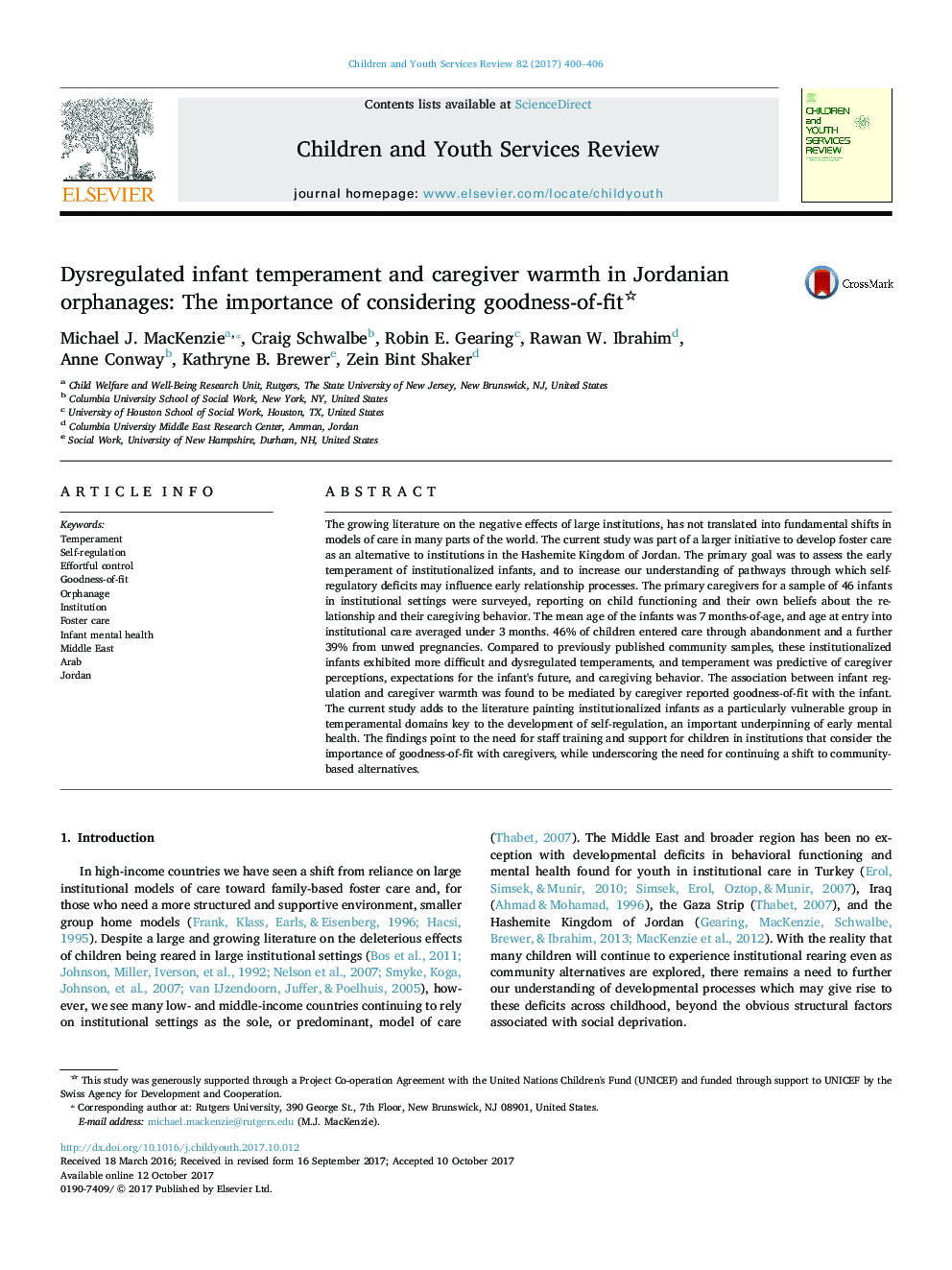| Article ID | Journal | Published Year | Pages | File Type |
|---|---|---|---|---|
| 4936208 | Children and Youth Services Review | 2017 | 7 Pages |
Abstract
The growing literature on the negative effects of large institutions, has not translated into fundamental shifts in models of care in many parts of the world. The current study was part of a larger initiative to develop foster care as an alternative to institutions in the Hashemite Kingdom of Jordan. The primary goal was to assess the early temperament of institutionalized infants, and to increase our understanding of pathways through which self-regulatory deficits may influence early relationship processes. The primary caregivers for a sample of 46 infants in institutional settings were surveyed, reporting on child functioning and their own beliefs about the relationship and their caregiving behavior. The mean age of the infants was 7Â months-of-age, and age at entry into institutional care averaged under 3Â months. 46% of children entered care through abandonment and a further 39% from unwed pregnancies. Compared to previously published community samples, these institutionalized infants exhibited more difficult and dysregulated temperaments, and temperament was predictive of caregiver perceptions, expectations for the infant's future, and caregiving behavior. The association between infant regulation and caregiver warmth was found to be mediated by caregiver reported goodness-of-fit with the infant. The current study adds to the literature painting institutionalized infants as a particularly vulnerable group in temperamental domains key to the development of self-regulation, an important underpinning of early mental health. The findings point to the need for staff training and support for children in institutions that consider the importance of goodness-of-fit with caregivers, while underscoring the need for continuing a shift to community-based alternatives.
Keywords
Related Topics
Health Sciences
Medicine and Dentistry
Perinatology, Pediatrics and Child Health
Authors
Michael J. MacKenzie, Craig Schwalbe, Robin E. Gearing, Rawan W. Ibrahim, Anne Conway, Kathryne B. Brewer, Zein Bint Shaker,
